
Finding sustainable ways to run a business has never been more important. Eco friendly print on demand companies offer a solution for entrepreneurs who want to create custom products without harming the planet.
In this article, we highlight the top 17 companies in 2025 that combine quality, innovation, and eco-conscious practices, making it easier than ever to launch a green POD business.
Benefits of Choosing Eco-Friendly POD Suppliers
Connect with Conscious Customers
Many shoppers prefer brands that show care for the environment.
Using eco-friendly POD suppliers signals that your brand values sustainability.
Highlighting recycled materials, organic fabrics, or low-impact printing methods can improve trust and make your brand stand out.
Future-Proof Your Business
Environmental regulations are tightening in many regions.
Working with suppliers who follow sustainable practices helps you stay compliant and reduces the risk of sudden production changes. Ethical sourcing can also make your supply chain more resilient when certain materials become limited or harder to source.
Support Better Operations
Eco-POD suppliers often track material use and production processes.
This gives you better visibility into how products are made and packaged.
You can use this information to make informed decisions, improve product planning, and communicate transparently with your customers about your sustainability efforts.
Top 17 Eco-Friendly Print on Demand Companies
PrintKK
PrintKK is an eco-friendly print on demand service. You can create custom shirts, hoodies, and accessories using materials that are gentler on the planet.
They handle everything from printing to packing, so you don't need to manage inventory. The platform also provides order tracking and simple design tools to streamline your process.
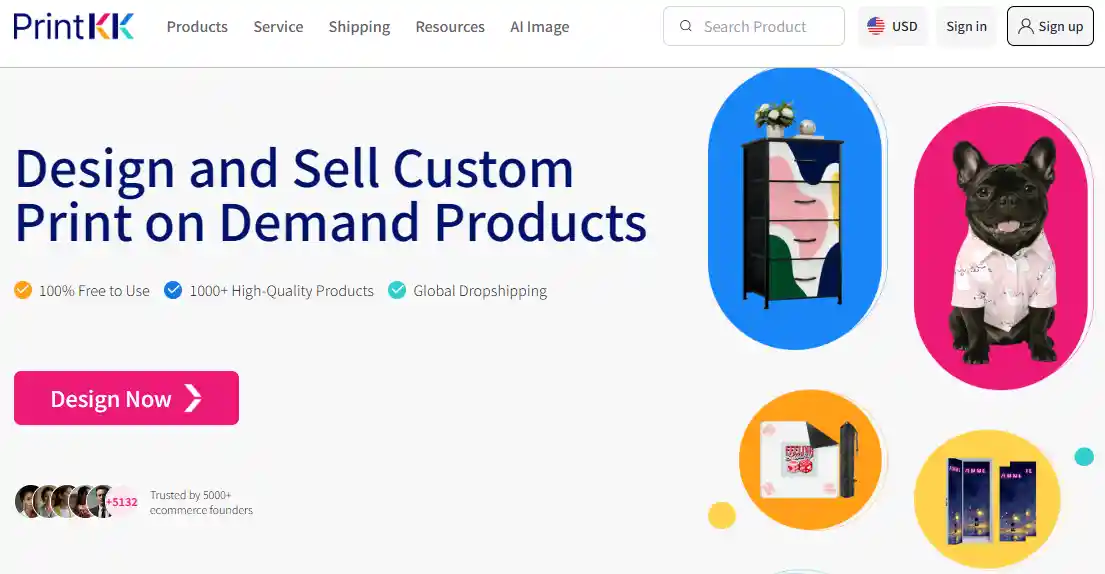
Pros:
- Offers a variety of clothing options, including organic cotton
- User-friendly interface for adding your own designs
- Manages printing, packaging, and shipping for you
- Provides clear production and order visibility
Cons:
- Shipping may be slightly slower in some regions due to eco-friendly practices
- Some specialty fabrics may offer fewer color options
Sustainability Initiatives:
- A portion of all revenue is dedicated to carbon removal efforts
- Utilizes organic cotton and recycled fabrics for clothing
- Employs water-based inks for safer printing
- Operates on a made-to-order model, minimizing overstock and waste
Inkthreadable
Inkthreadable is a UK-based print-on-demand company focusing on ethical and eco-friendly production.
Everything is made only when an order is placed, helping to reduce waste and excess stock. The company emphasizes transparency and sustainability in its operations.
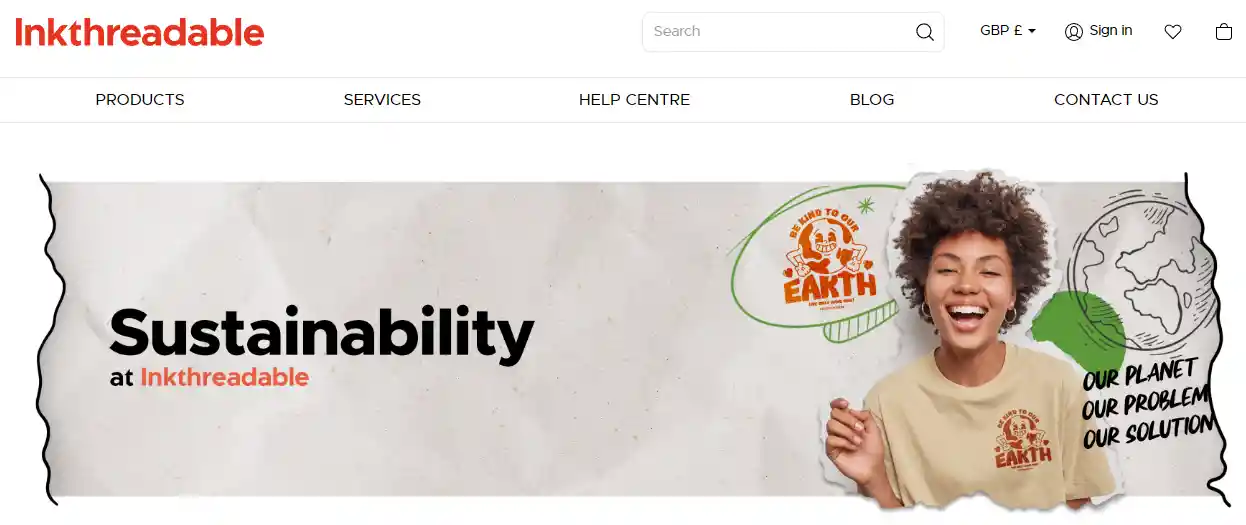
Pros:
- Connects directly with Shopify and Etsy for easy store management
- Offers over 60 products, including clothing, mugs, and home goods
- Supports worldwide shipping with tracking
- Provides environmentally-friendly options for both small and large orders
Cons:
- Some products may have extended wait times
- Limited customization on certain items
- Higher costs for small or one-time orders
- Not all product options are eco-friendly
Sustainability Initiatives:
- Uses recycled and biodegradable packaging materials
- Employs water-based and low-impact inks
- Offers carbon offset shipping options
- Prints on natural and recycled fabrics as much as possible
SwagMagic
SwagMagic is a print-on-demand store that offers eco-friendly items. They manage everything from order fulfillment to packaging, allowing you to focus on design and marketing.
Their range is expanding, and they are gradually offering greener materials across more products.
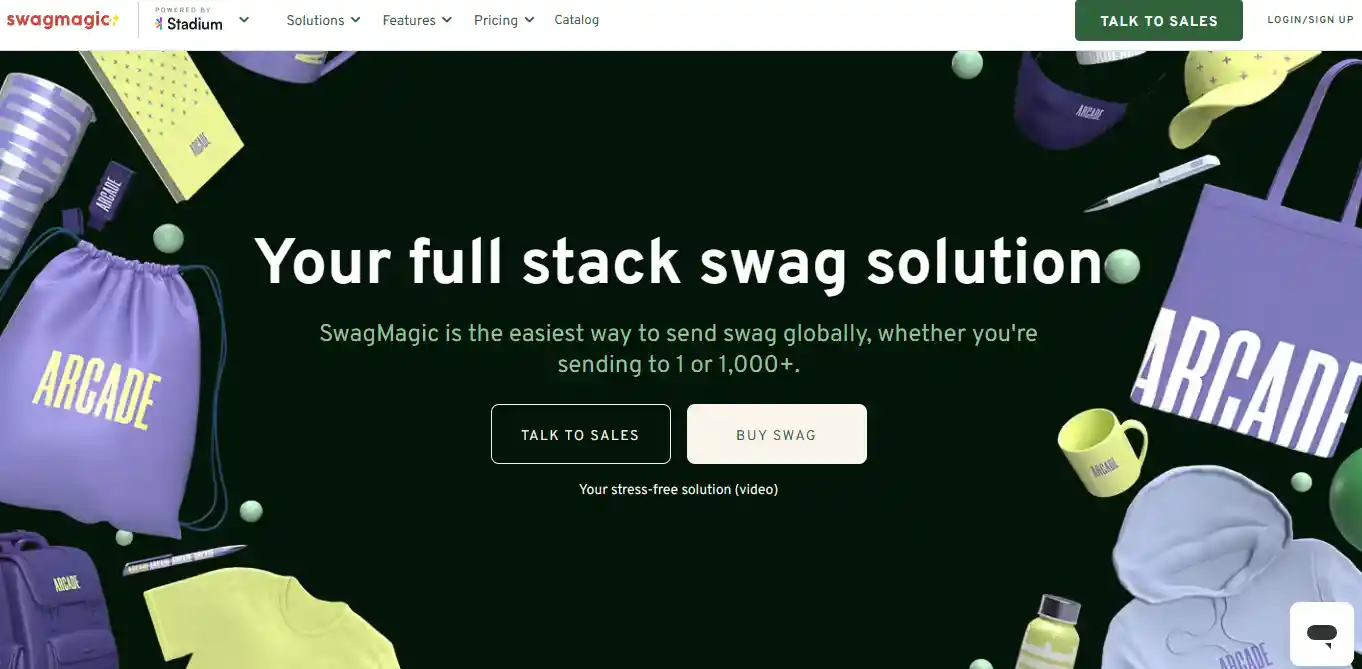
Pros:
- Fast order processing and fulfillment
- Supports small businesses with automated POD services
- Offers products ranging from clothing to office supplies
- Easy-to-use platform for managing multiple product lines
Cons:
- Limited availability of eco-friendly materials for some products
- Customer service can be slow during peak times
- Not all shipping options are fully sustainable
- Extra charges may apply for international shipping
Sustainability Initiatives:
- Recycled or biodegradable packaging on most items
- Uses water-based inks where possible
- Focuses on reducing production waste
- Encourages customers to choose greener shipping options
The Print Authority
The Print Authority offers eco-friendly printing for apparel and promotional products.
You can create custom items like t-shirts, tote bags, and mugs while relying on sustainable production methods. Their services work well for both small businesses and larger brands.
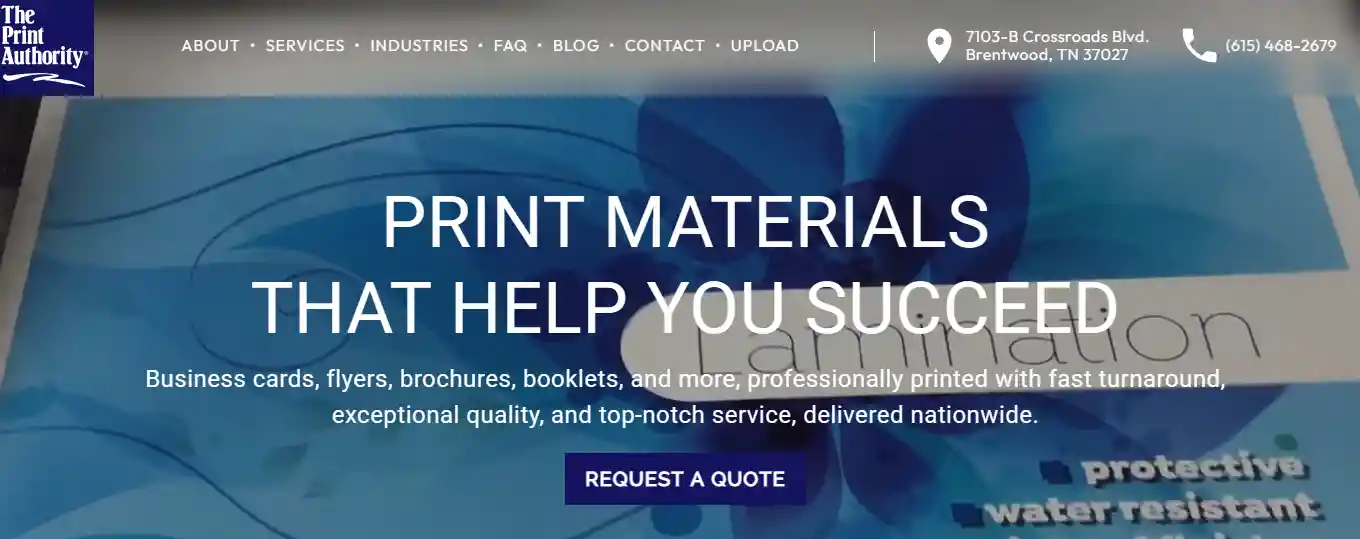
Pros:
- Offers both bulk and POD options for flexibility
- Supports multiple product categories including promotional goods
- Simple online design tool with easy file uploads
- Transparent pricing and production timelines
Cons:
- International shipping options are limited
- Eco-friendly materials may increase product cost
- Some items are not fully biodegradable
- Limited design customization on certain products
Sustainability Initiatives:
- Water-based inks to reduce chemical impact
- Uses organic and recycled fabrics for apparel
- On-demand printing to minimize overproduction
- Reduces packaging waste through compact, recyclable materials
Print Natural
Print Natural focuses on sustainable print-on-demand for apparel and accessories. You can produce items knowing the fabrics, inks, and packaging are eco-conscious.
Their platform is built for people who want to sell products responsibly, with transparency about where materials come from and how they're processed. They also help reduce overproduction by printing only what you sell.
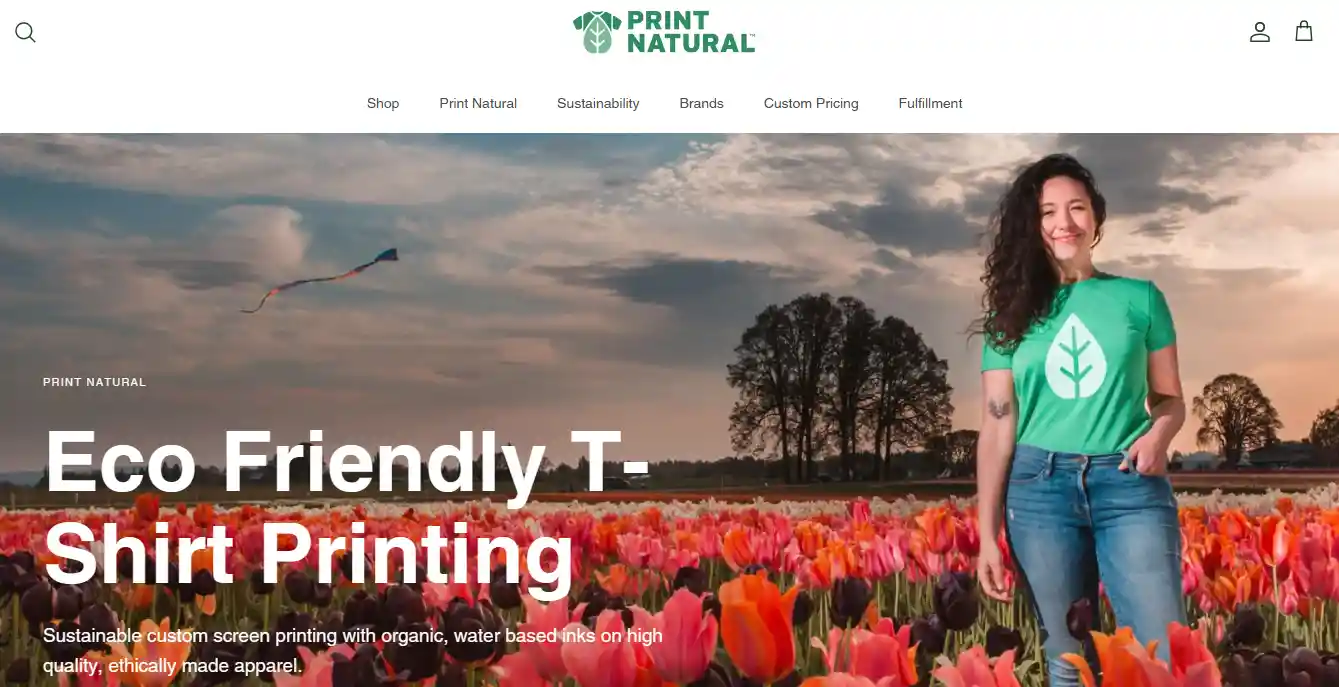
Pros:
- Strong focus on eco-friendly materials like organic cotton
- Transparent about their production processes
- Offers a good selection of apparel and accessories
- Tools to help manage orders and reduce waste
Cons:
- Smaller product range compared to larger POD companies
- Limited international shipping options
- Some eco-friendly items are higher priced
Sustainability Initiatives:
- Uses organic fabrics and recycled materials
- Biodegradable or recycled packaging
- Eco-friendly inks on all products
- Prints only when orders are placed to reduce overproduction
Art of Where
Art of Where is a print-on-demand service known for sustainable apparel and accessories.
They focus on artist-driven products like leggings, scarves, and bags. You can turn your creative designs into products while relying on eco-conscious production practices.
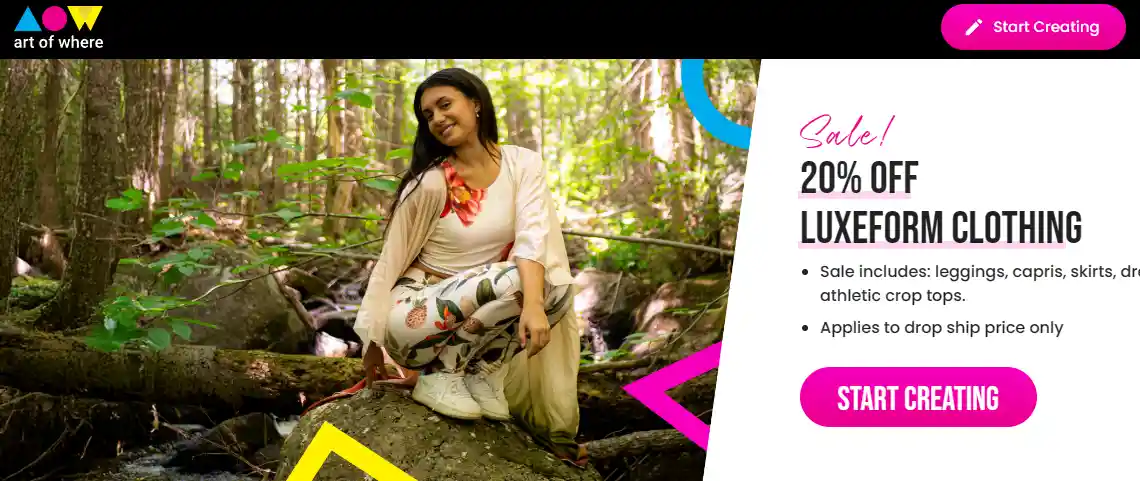
Pros:
- High-quality fabrics suitable for unique designs
- Focuses on artist and creative community products
- Supports small creative businesses
- Transparent production and ethical sourcing
Cons:
- Non-apparel products are limited
- Prices are higher than typical POD platforms
- Some shipping regions may experience delays
- Limited bulk discount options
Sustainability Initiatives:
- Organic and recycled fabrics for apparel and accessories
- Water-based, low-impact inks
- On-demand production reduces waste
- Minimal, recyclable packaging materials
ByStadium
ByStadium offers eco-friendly print-on-demand solutions for custom merchandise.
It's ideal if you want sports apparel, team gear, or fan merchandise with sustainable practices. You can manage your orders easily, and they handle production and shipping.
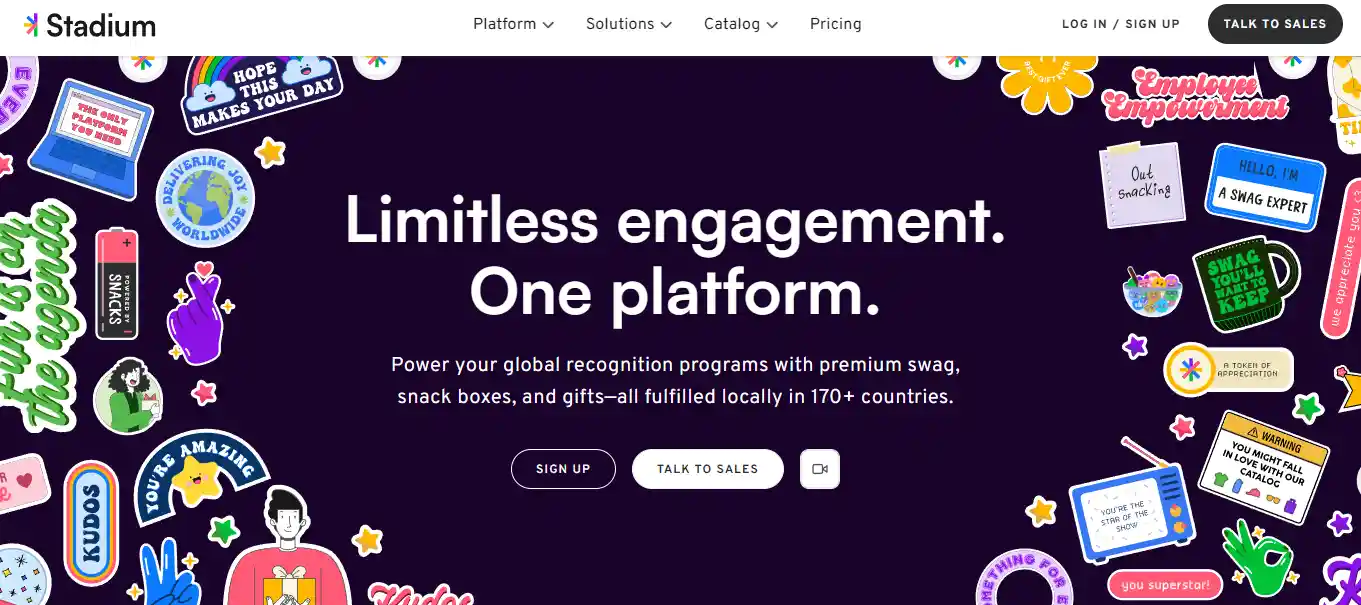
Pros:
- Specializes in sportswear and fan merchandise
- Variety of apparel options and sizes
- Easy-to-use design platform
- Supports small and large order volumes
Cons:
- Limited non-sports product categories
- Shipping times vary by region
- Some products may not have full eco-certifications
- Customer support can be slow during busy periods
Sustainability Initiatives:
- Recycled fabrics for select products
- Water-based inks for safer printing
- Minimal and recyclable packaging
- Encourages carbon-conscious shipping options
Two Fifteen
Two Fifteen lets you sell products like t-shirts and bags with eco-friendly fabrics.
You only print what's ordered, so you avoid leftover stock. You'll also notice the platform makes tracking orders simple, which helps you focus on selling without worrying about waste piling up.
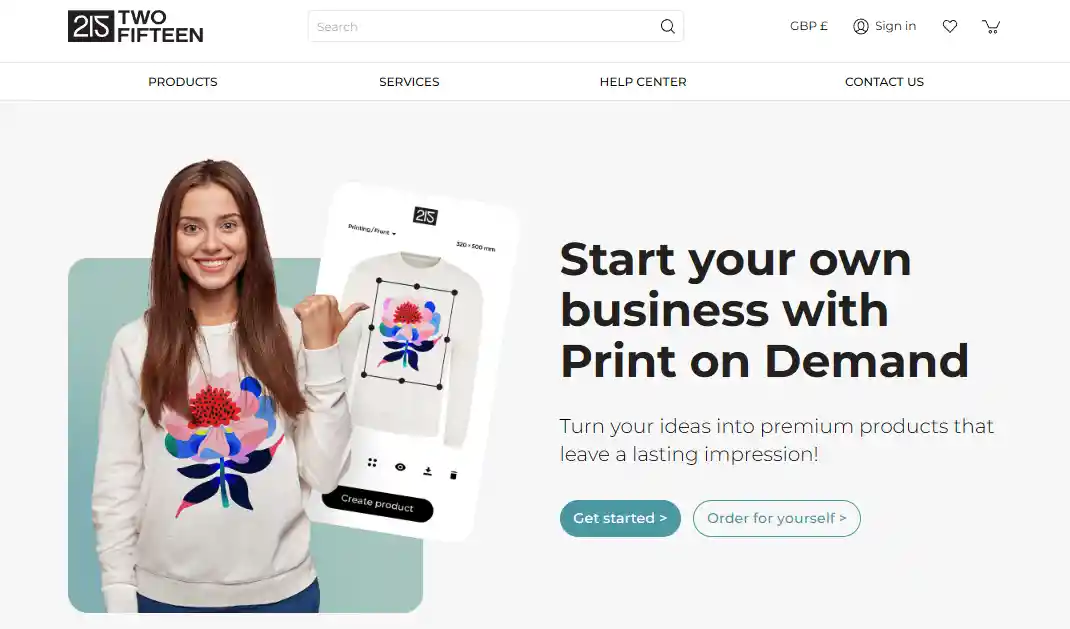
Pros:
- Organic fabrics for apparel
- Prints only on demand
- Easy store integration
Cons:
- Fewer products than larger POD platforms
- Shipping outside the U.S. can be slow
- Some eco-friendly items cost more
Sustainability Initiatives:
- Water-based inks
- Recycled fabrics
- Minimal packaging
Teemill
Teemill focuses on circular fashion. You can sell shirts and hoodies and even take back old items for recycling.
Their system helps you keep a small environmental footprint while letting your store feel fresh and conscious. You'll have control over what's produced, which reduces waste automatically.
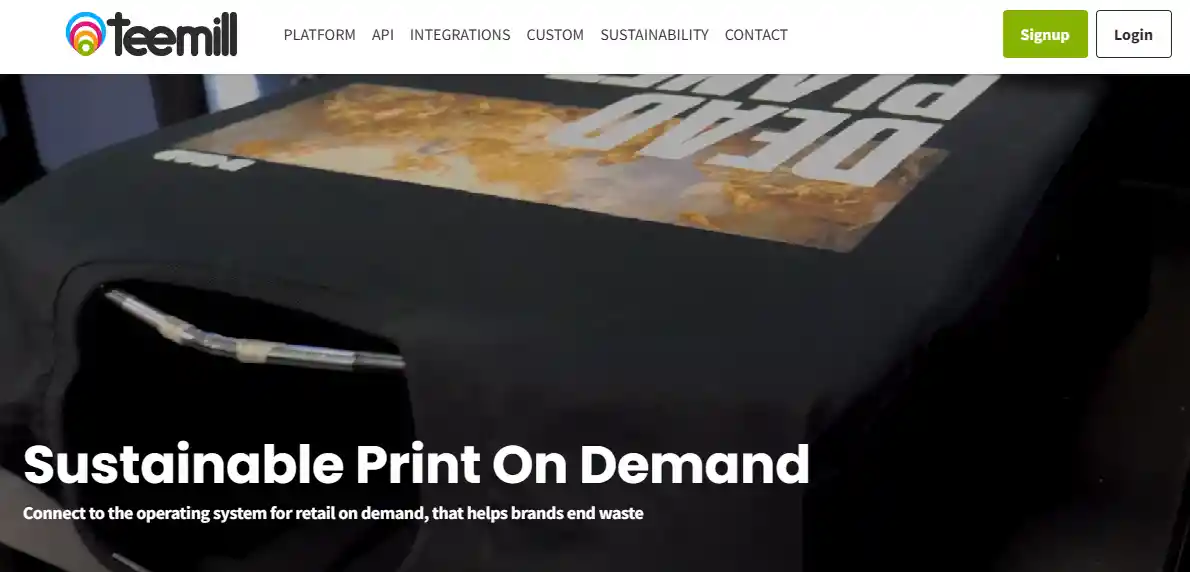
Pros:
- Garment recycling program
- Organic cotton options
- Easy e-commerce setup
Cons:
- Smaller product range
- Higher prices for sustainable items
- Shipping mostly in Europe and the U.S.
Sustainability Initiatives:
- Organic fabrics
- Recycling programs for old products
- Reduced packaging
Jungle Culture
Jungle Culture focuses on ethical and eco-conscious products. You can sell mugs, shirts, and accessories knowing materials are sourced responsibly.
The platform gives transparency about production, so you can make decisions that align with your values without extra effort.
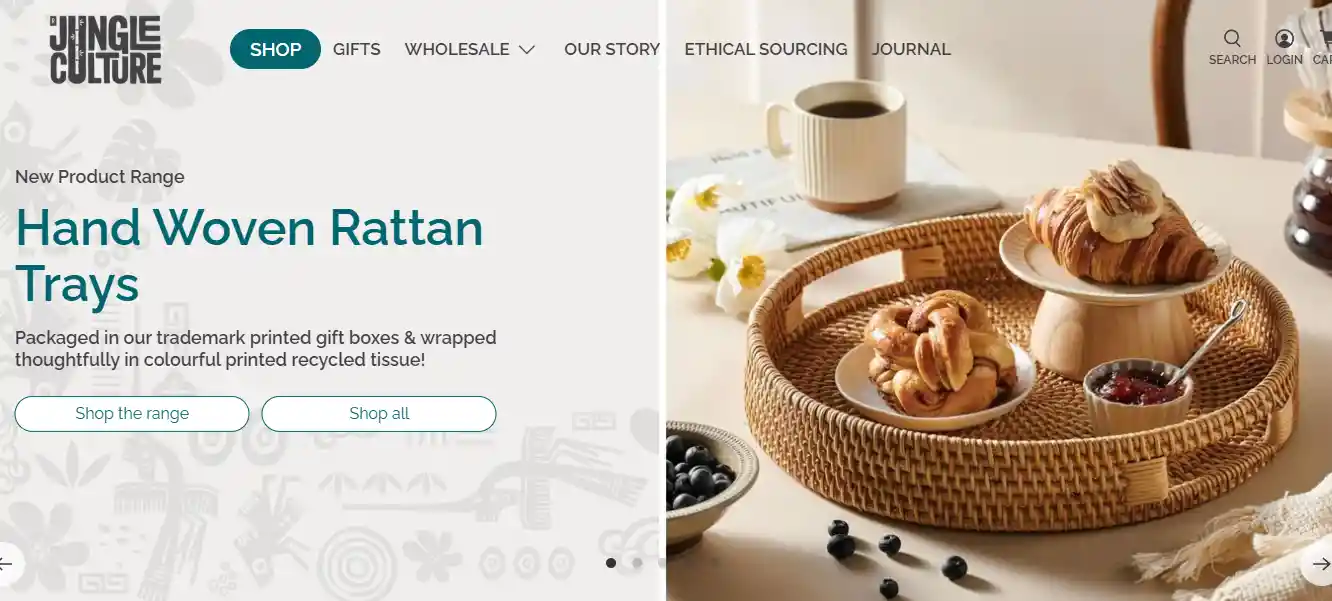
Pros:
- Transparent sourcing and fair labor
- Variety of products
- Order management is straightforward
Cons:
- Limited global shipping
- Prices higher than standard options
- Smaller catalog than big POD services
Sustainability Initiatives:
- Organic and recycled fabrics
- Water-based inks
- Eco-friendly packaging
Printful
Printful makes it easy to sell products with eco-friendly printing options.
You can offer clothing, home goods, and accessories without keeping inventory. The platform also shows sustainability data so you can make informed choices on fabrics, inks, and shipping.
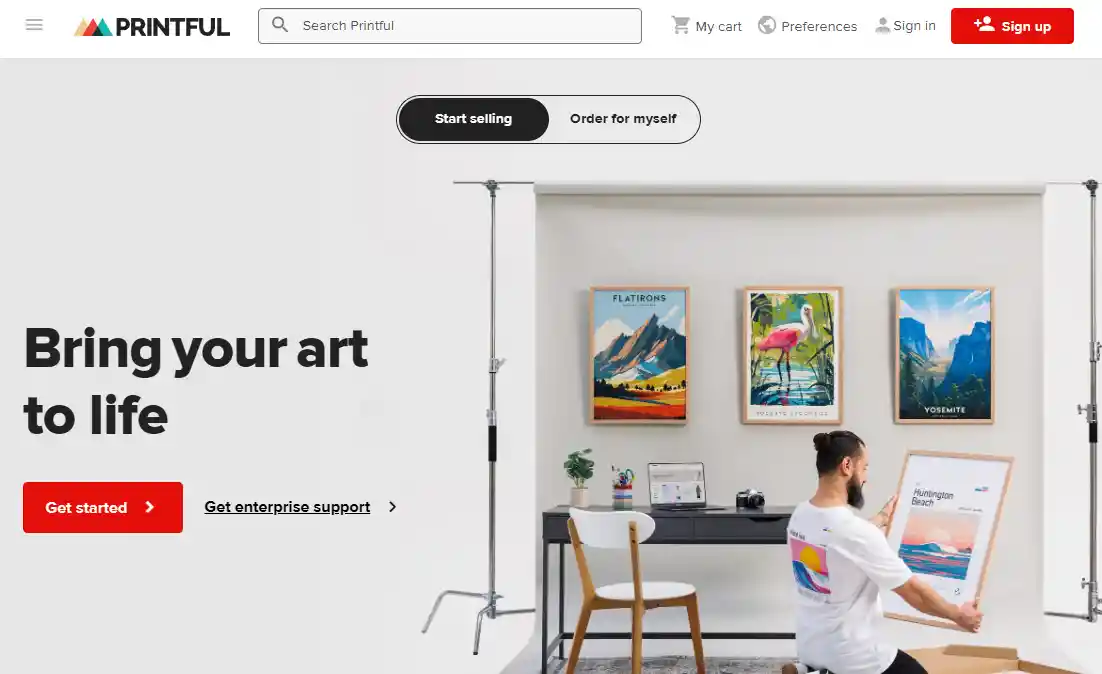
Pros:
- Large product selection
- Easy integration with stores
- Fast production
Cons:
- Sustainable items can be pricier
- International shipping times vary
- Limited customization for some products
Sustainability Initiatives:
- Water-based inks
- Recycled packaging
- Carbon-neutral shipping options
Subliminator
Subliminator is built for on-demand sublimation, letting you offer eco-friendly products like apparel and home goods.
You print only what's ordered, which reduces overstock. You'll also find it easy to integrate with your online store while keeping production efficient.
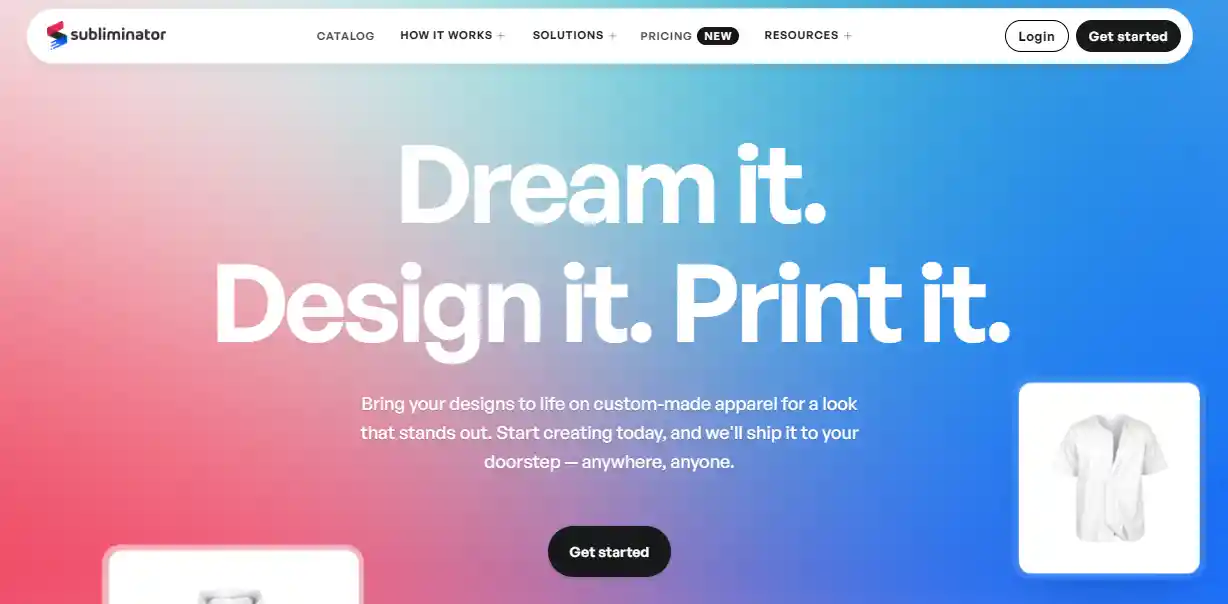
Pros:
- Quality sublimation printing
- On-demand reduces waste
- Store integration is simple
Cons:
- Limited eco-certified materials
- Smaller product range
- Some items cost more
Sustainability Initiatives:
- Water-based inks
- Recyclable packaging
- On-demand production
Custom Ink
Custom Ink lets you create merchandise with sustainable options.
You can design apparel, mugs, and accessories while avoiding large stock.
The platform helps you balance customization and eco-consciousness so your store stays professional and responsible.
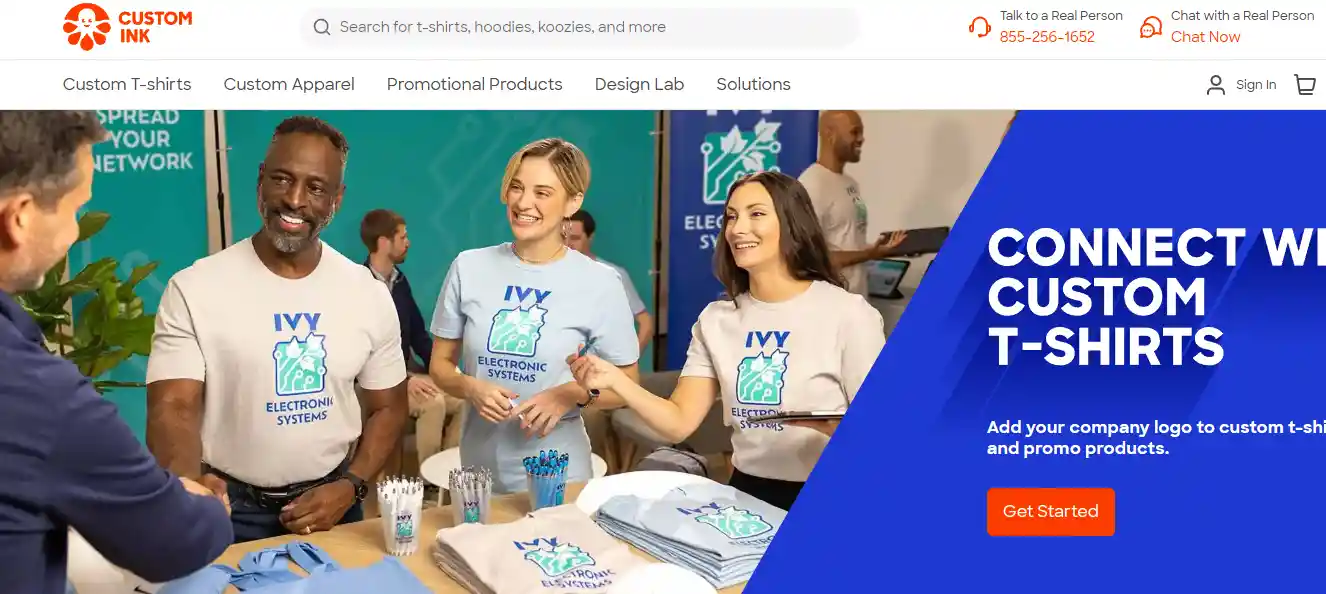
Pros:
- Wide range of items
- Easy design tools
- Responsive support
Cons:
- Sustainable items cost more
- Limited international shipping
- Bulk orders are more practical
Sustainability Initiatives:
- Eco-friendly inks
- Organic and recycled fabrics
- Recyclable packaging
TPOP
TPOP focuses on eco-conscious POD. You can sell clothing, mugs, and accessories while avoiding excess waste.
They provide eco-friendly packaging and options for greener shipping, so your store can feel responsible without extra management.
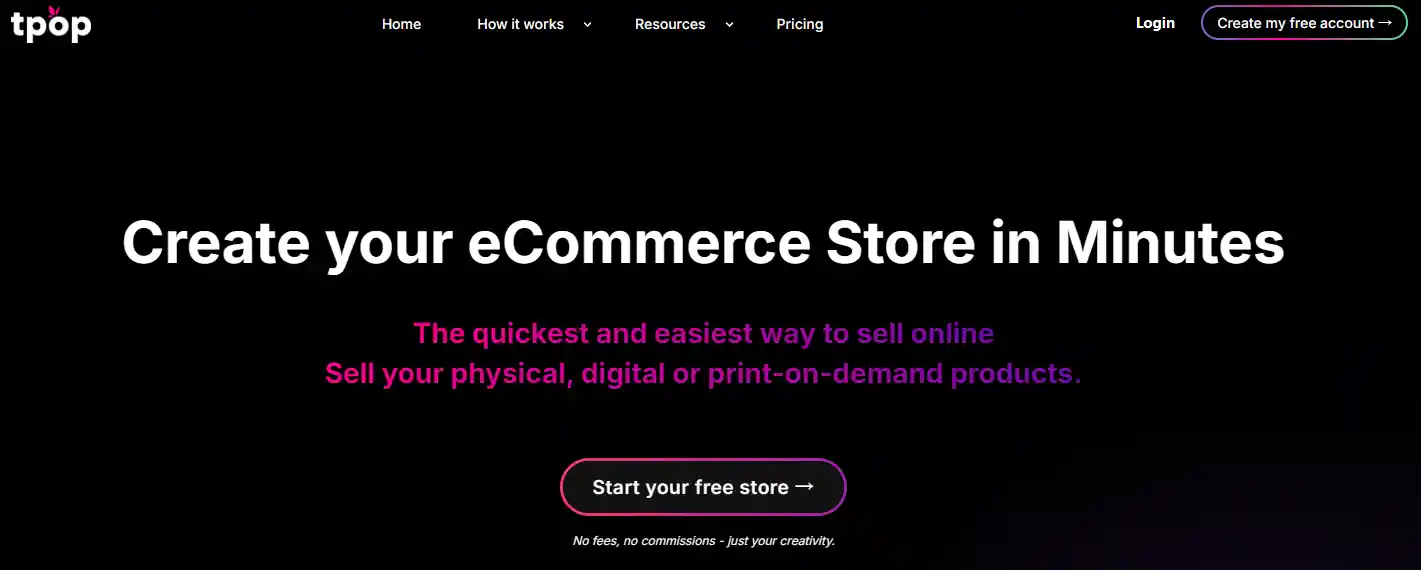
Pros:
- Water-based inks and organic fabrics
- Sustainable packaging
- Easy e-commerce integration
Cons:
- Mainly ships in Europe
- Smaller product catalog
- Some items are more expensive
Sustainability Initiatives:
- Biodegradable packaging
- Carbon-neutral shipping
- On-demand production
Gelato
Gelato makes it possible to sell POD products globally with reduced shipping emissions.
Local production in multiple countries helps cut the footprint. You can offer apparel and home items without overstock, and tracking orders is simple, so you can focus on sales rather than logistics.
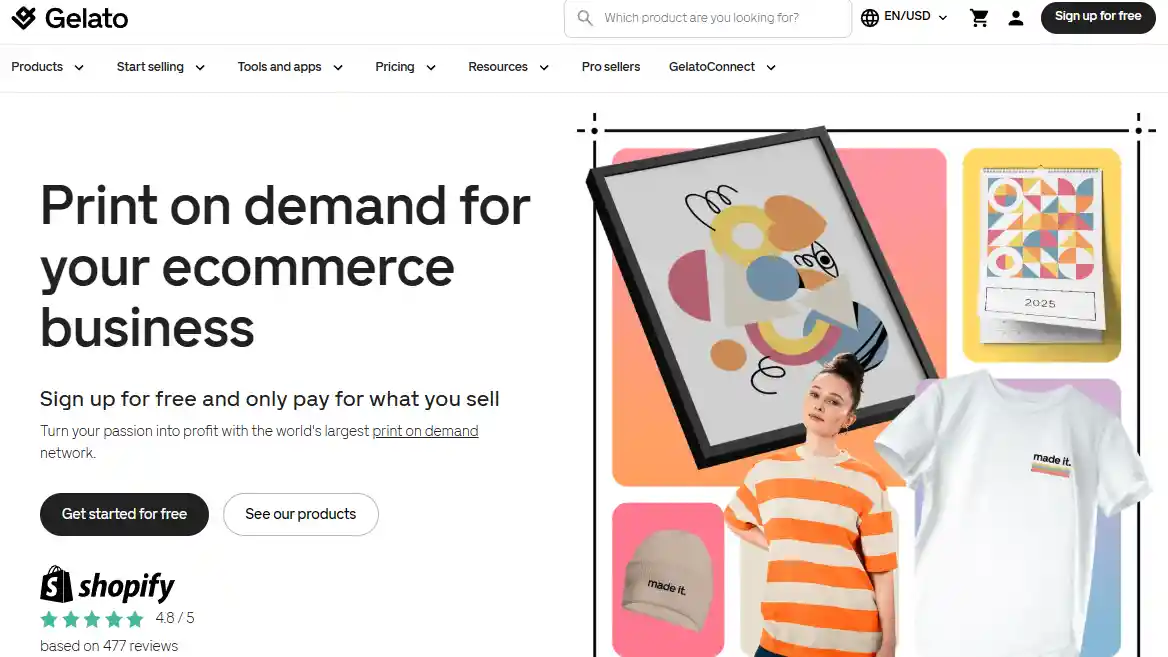
Pros:
- Local production reduces emissions
- Wide product range
- Supports multiple online stores
Cons:
- Eco-certified materials limited
- Some regions have slower shipping
- Prices higher for sustainable items
Sustainability Initiatives:
- Water-based inks
- Local production
- Recyclable packaging
Printify
Printify provides a network of suppliers for POD, letting you choose eco-friendly materials.
You can sell apparel, accessories, and home goods without holding stock. The system allows you to select the best supplier for sustainability goals and manage orders easily.
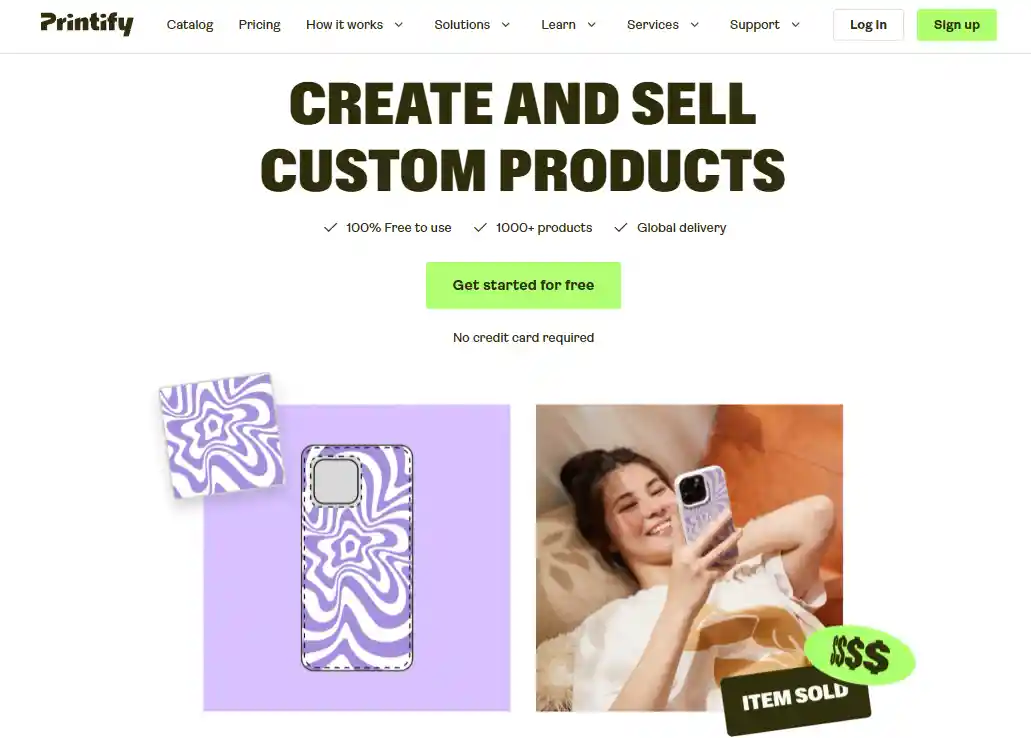
Pros:
- Large supplier network
- Variety of eco-friendly products
- Easy store integration
Cons:
- Quality varies by supplier
- Some eco options limited in size or color
- Shipping speed depends on supplier
Sustainability Initiatives:
- Organic fabrics and recycled materials
- Water-based inks
- Recyclable packaging
Contrado
Contrado offers on-demand printing for eco-conscious products. You can sell clothing, bags, and home items while selecting sustainable fabrics and inks.
Their on-demand model reduces leftover stock, which keeps waste down and helps you offer green products without extra effort.
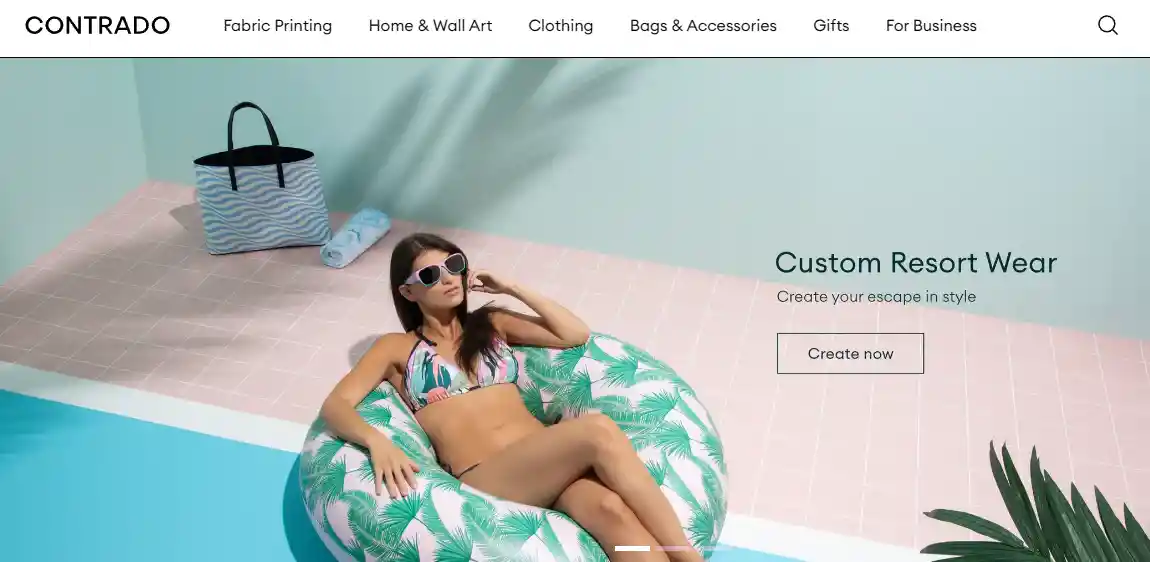
Pros:
- Wide selection of items
- High-quality printing
- On-demand reduces waste
Cons:
- Sustainable materials cost more
- Shipping outside Europe is slower
- Some product options are limited
Sustainability Initiatives:
- Organic fabrics and recycled materials
- Water-based inks
- Recyclable, minimal packaging
Read More:
6 Best Eco-Friendly POD Products to Sell
Travel Coffee Mugs
A travel coffee mug is perfect for people on the go. Choosing one made from recycled or stainless steel reduces plastic waste.
You can offer designs on mugs that are durable and reusable. Each sip your customer takes avoids single-use cups. It's a simple way to combine practicality with eco-conscious choices.
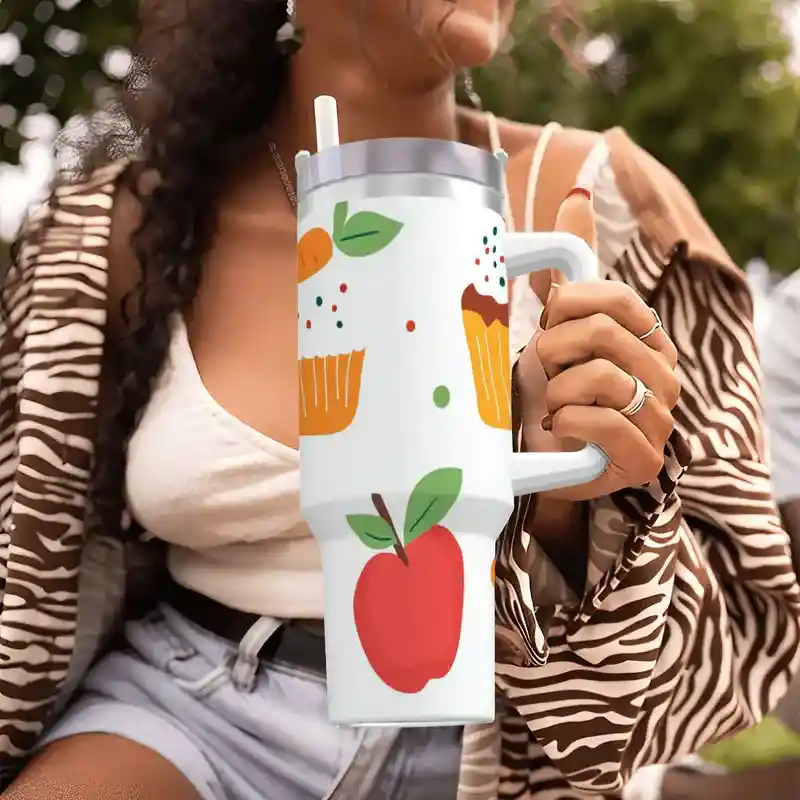
Print on Demand Travel Coffee Mug with Handle and Straw (40oz) - Drinkware - PrintKK
Candles
Candles are more than decoration. When you pick soy or beeswax candles, they burn cleaner than traditional paraffin.
You can offer scents in recyclable packaging. These candles reduce chemicals released into the air. Selling eco-friendly candles lets your customers enjoy cozy moments while supporting sustainable products.

Custom Frosted Jar Scented Candle with Lid (6oz) - Print-On-Demand - PrintKK
Cotton Shirts
Cotton shirts are a staple item. Using organic cotton saves water and avoids harmful pesticides.
Printing on demand ensures you only make what is ordered. You help reduce overproduction and waste. Your customers get soft, durable shirts without contributing to environmental harm.
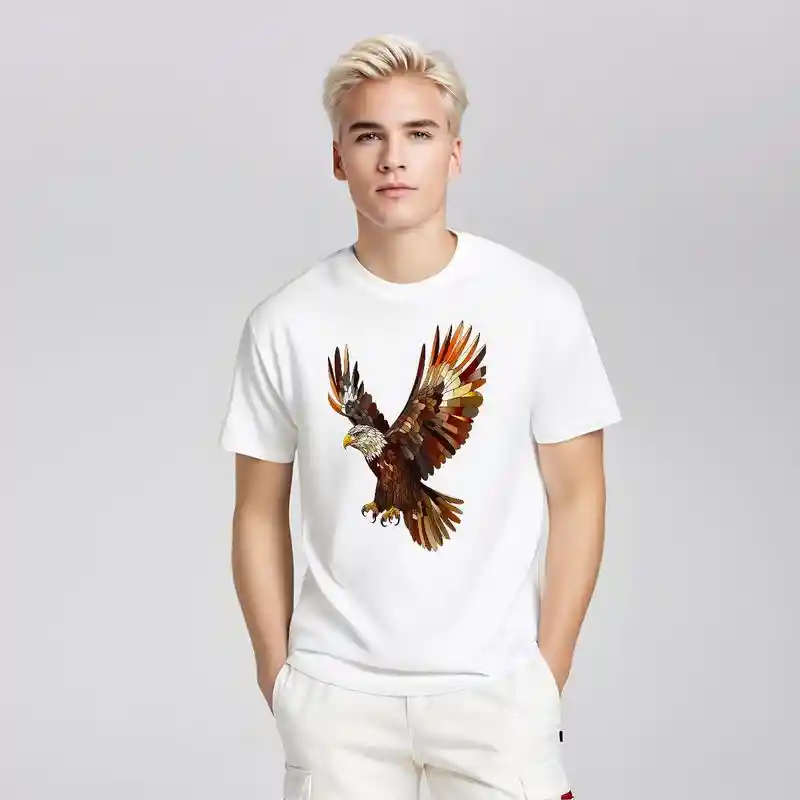
Custom Gildan 5000 Unisex Cotton Tee Customized Services - Print on Demand Fulfillment - PrintKK
Tote Bags
Tote bags replace single-use plastic bags. Eco-friendly options come in recycled fabrics or organic cotton.
They are sturdy and reusable. You can add custom prints, but each bag also encourages sustainable habits. Your customers carry their essentials while making a small but meaningful impact.
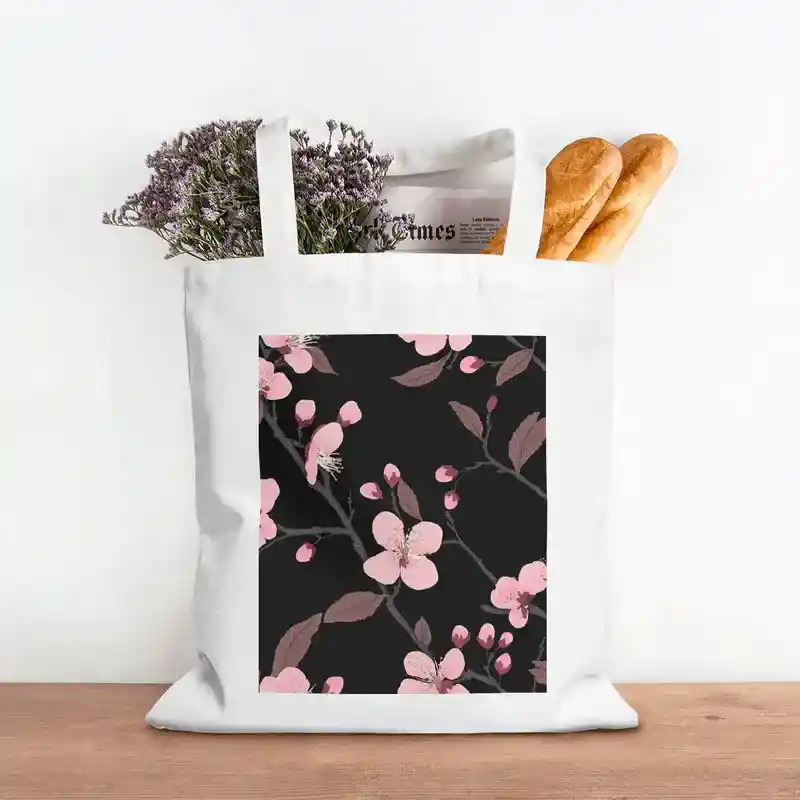
Custom Canvas Tote Bag (Made in USA)(Submit Shipping Label) - Print-On-Demand - PrintKK
Canvas Prints Wall Art
Canvas wall art doesn't have to be wasteful. Using sustainably sourced canvas and water-based inks reduces chemical use.
These prints last long, so your customers avoid replacing cheap posters often. It's a stylish way to decorate and stay eco-conscious.

Print on Demand Canvas Fabric Wall Art (Made in USA)(Submit Shipping Label) - Wall Decor - PrintKK
Baby Onesies
Baby onesies are soft and gentle. Organic cotton or bamboo options keep fabrics chemical-free and sustainable.
Small products like these can still make a difference. By selling eco-friendly baby clothes, you help parents choose safer items for their little ones while supporting the planet.
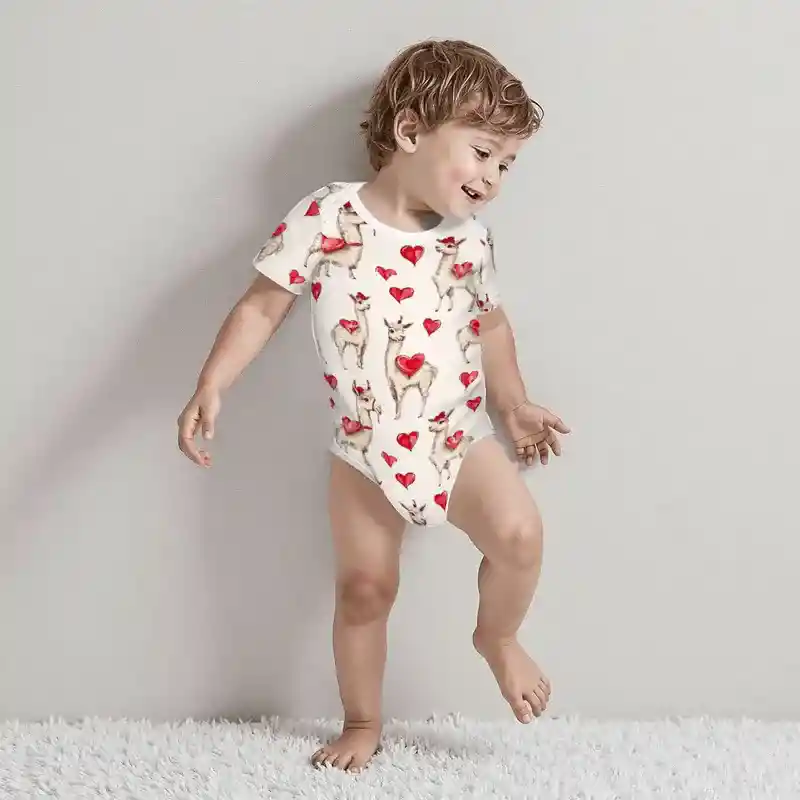
Custom AOP Baby Cotton Short Sleeve Onesies with Print on Demand - PrintKK
How to Calculate the Carbon Footprint of Your Custom T-Shirt
Understand the Basics of Carbon Footprint
A carbon footprint measures how much CO₂ equivalent your product produces. Usually, it's expressed in kg CO₂e.
When calculating, think about the full lifecycle of your T-shirt—from raw materials to how it's used. This gives a clearer picture of the real impact.
Impact of Raw Materials
Different fabrics produce different emissions. Organic cotton uses less fertilizer but more water.
Recycled polyester can save energy but might involve chemical processing. Check environmental data from fabric suppliers to see which materials have a smaller footprint.
Energy Use in Production and Printing
The energy needed to make a T-shirt varies. Printing methods like screen printing, sublimation, or heat transfer each use different amounts of electricity.
You can estimate usage by looking at machinery specs or supplier info. Choosing low-energy methods helps reduce emissions.
Carbon Emissions from Shipping
Shipping adds to your T-shirt's footprint. International shipping usually emits more than domestic.
Distance, transport type, and packaging all affect emissions. You can track these numbers from shipping services or use online estimates.
Simple Formula and Tools
A basic formula helps:
Carbon Footprint ≈ Raw Materials + Production + Printing + Shipping + Usage
You can create a small table to plug in numbers for each part. Here is a sample form for reference.
Step | Category | Estimated CO₂e (kg) | Notes / Data Source |
1 | Raw Materials | 3.5 | Organic cotton vs. recycled polyester, supplier data |
2 | Production | 1.2 | Energy used in spinning, weaving, cutting, sewing |
3 | Printing | 0.8 | Screen printing, sublimation, or heat transfer energy |
4 | Shipping | 1.0 | Domestic shipping by truck, ~500 km |
5 | Usage | 2.0 | Washing and drying over product lifetime |
Total | Carbon Footprint | 8.5 | Sum of all steps |
Considering carbon emissions when customizing your T-shirts lets you make smarter, more sustainable choices. Even small changes add up over time.

Eco-Friendly Print-on-Demand Business Scaling Tips
Getting Started with Your Eco-POD Store
Pick a niche that excites you but also fits sustainability.
Beyond shirts, think reusable mugs, tote bags, or eco-friendly stationery.
Check suppliers' certifications and ask about material sourcing. Integrate your store with Shopify or Etsy so orders flow automatically, saving you time to focus on designs.
Designing for Sustainability
When designing, consider materials and inks. Organic cotton or recycled polyester feels good and sells better to conscious buyers.
Keep packaging simple—avoid extra plastic or layers. Small touches, like printing care instructions on recycled tags, make a difference and show customers you care about the planet.
Scaling Without Compromising Sustainability
Avoid producing too much at once. Use made-to-order models to prevent waste.
Streamline operations—batch printing or combining shipments reduces energy use. For marketing, focus on channels your eco-conscious audience trusts, like social media communities or sustainability blogs.
Exploring Niche Opportunities
Look for underrepresented products. Maybe eco-friendly baby clothes or canvas prints are missing from your region.
Bundles work too—pair a tote bag with a reusable water bottle. Test small batches first to see what resonates without creating excess stock.
Tools and Resources
Use calculators to track carbon footprint of products. Join eco-POD communities online—they share tips and supplier contacts.
Monitor your environmental impact regularly; it keeps you honest and helps improve your store as it grows.
Expert Tips
Choosing an eco friendly print on demand service helps you run a business that is better for the planet. You can offer products that your customers value while keeping waste low.
Focus on sustainable materials, smart production, and responsible shipping. Small choices add up.
By keeping your process green, you show that business and sustainability can work together. Your efforts matter, and your customers will notice.
FAQs
Is print-on-demand environmentally friendly?
Yes, this method helps the earth a lot. Items get made only after an order comes in, so there's less leftover stuff thrown away. It saves trees, water, and energy while keeping factories from overproducing.
What makes print-on-demand products eco-friendly?
They come from natural stuff like grown-without-chemicals cotton or reused cloth. Safe, plant-based colors are used, and wrapping avoids plastic. Making goods near buyers also drops air pollution from trucks.
How long to receive eco-friendly POD order?
You can expect your package in about 5 to 9 days. Printing close by makes it quicker and shorter trips mean faster arrival. Always ask the company for details tied to your spot.
How do eco-friendly POD suppliers handle shipping sustainably?
They send from spots near you to use less gas. Boxes break down in nature, and some add tree-planting to offset travel fumes. This keeps the process kind to the world.
Are eco-friendly POD suppliers more expensive than traditional ones?
They can be a little pricier due to clean materials and careful ways. Yet, no need for big storage saves cash, and folks enjoy picking green options that feel good to buy.










 Global Shipping
Global Shipping





























